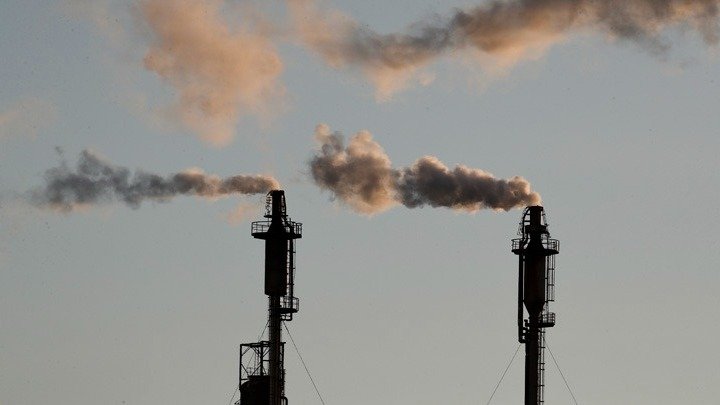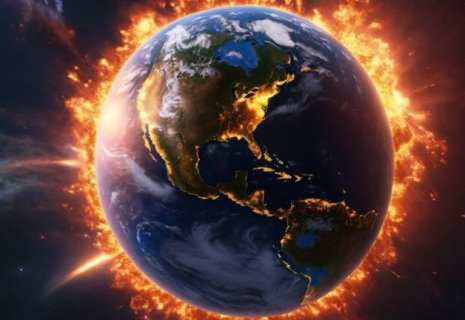
Global carbon emissions set to hit record in 2025
Carbon dioxide emissions from the burning of fossil fuels are expected to break a new record in 2025, according to a landmark scientific study released today, which makes it clear that limiting global warming to below 1.5°C is now essentially “impossible.”
According to the Global Carbon Project report, compiled by 130 scientists and published annually as countries participate in UN climate summits—in this case COP30—CO2 emissions from the burning of coal, oil, and gas are projected to rise by 1.1% in 2025 compared to last year, reaching 38.1 billion tons, CE Report quotes ANA-MPA.
This represents an increase “above the annual average of the past ten years, which was 0.8%,” the study notes, highlighting that emissions are now 10% higher than in 2015, the year of the Paris Agreement, which aimed to limit the global temperature rise to 2°C, ideally 1.5°C, above pre-industrial levels.
Although emissions have fallen in some countries—mainly due to the adoption of renewable energy, the replacement of internal combustion engine vehicles with electric cars, and reduced deforestation—“collectively, the world is not rising to the occasion,” said Glenn Peters of the Center for International Climate Research to Agence France-Presse.
“Everyone must do their part, and everyone must do more,” he added.
Carbon budget almost exhausted
The study, as in previous COPs, provides an initial assessment of the deviation from global climate targets for the current year. It estimates that the remaining CO2 that could be emitted while still limiting warming to 1.5°C is just 170 billion tons.
“This equals four years of emissions at the current rate before the budget that would allow limiting global temperature rise to 1.5°C is exhausted. Therefore, this (limitation) is practically impossible,” emphasized Professor Pierre Friedlingstein of the University of Exeter, lead author of the study.
The realization of failure has become unavoidable throughout 2025 and is now acknowledged by the UN, climate scientists, the Intergovernmental Panel on Climate Change (IPCC), and the countries participating in COP30. The aim is to ensure that any overshoot is temporary—but this could take decades.
If the current trajectory continues, global temperatures are expected to rise by 2.3–2.5°C by the end of the century, even if countries meet their commitments, the UN estimated shortly after the meeting in Belém.
This magnitude (+2.6°C by 2100) is similar to calculations also released today by the Climate Action Tracker.
Recent government announcements “change nothing,” according to the team of scientists.
New carbon record
In 2025, emissions specifically from coal burning are expected to reach a new record, rising by 0.8% globally, driven by increases in the United States and India.
Emissions from oil and gas combustion are also increasing, by 1% and 1.3% respectively. Regarding gas, emissions “appear to be returning to the persistent upward trend recorded before Russia’s invasion of Ukraine,” the study notes.
Regionally, the US and European Union reversed the declining trends seen in recent years, recording increases of 1.9% and 0.4% respectively, partly due to colder winters that increased heating demand.
Emissions in China, the world’s largest polluter, appear to be stabilizing (+0.4%). However, according to Mr. Peters, uncertainties about the country’s policies make it premature to estimate whether its emissions have peaked or not.
ΦΩΤΟ ΑΡΧΕΙΟΥ EPA/CAROLINE BREHMAN
























